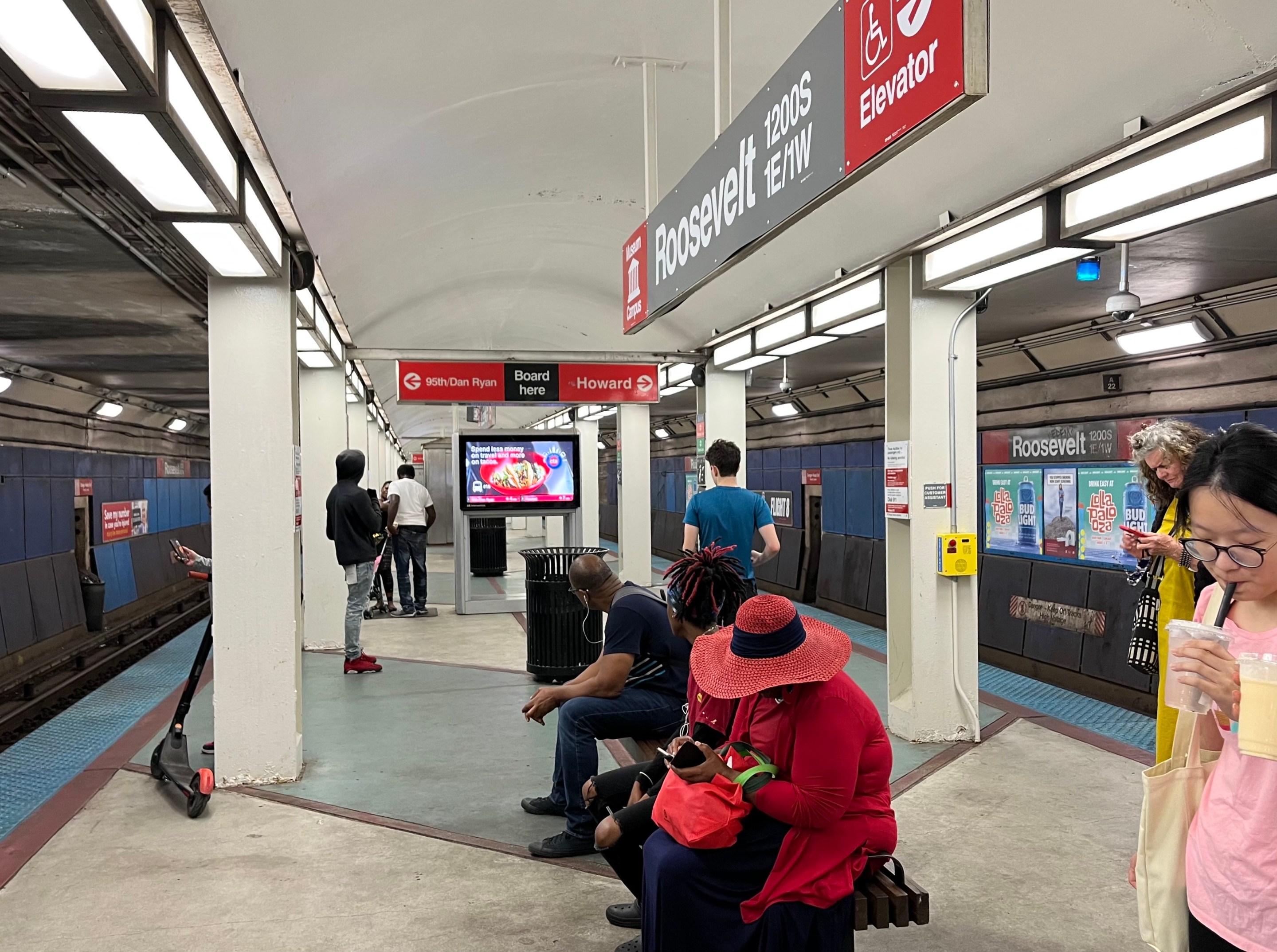
The Chicago Transit Authority is facing an upcoming budget gap. Transit ridership saw a drastic drop all over the country due to the COVID-19 pandemic and still has yet to reach 2019 ridership numbers. At the same time, according to a report from The Center Square, the operating expenses for the CTA have gone up while the number of fares have gone down. The federal government had provided the CTA with $2.2 billion in relief funds, but the CTA has projected there will only be about $16 million left in 2026, so unless more federal aid is passed, there will be a nearly $400 million shortfall that year.
"The CTA and other transit agencies around the country continue to advocate for additional federal funding to avoid other undesirable options, which have historically included service adjustments or fare increases," the agency stated in its 2022 financial statements.
Active Transportation Alliance planning director David Powe, shared some interesting statistics about local transit with Streetsblog. For instance, while the CTA has said that it didn’t reduce service during the pandemic, the grassroots advocacy group Commuters Take Action found that the transit agency had cut service by 24 percent since 2020. Though ATA is still developing its messaging around the situation, Powe advocated for asking the state of Illinois to step in and help save transit.
“Transit needs help," Powe said. "It's been underfunded for decades and ridership has been declining since 2012. In fact, ridership is down 40 percent since COVID. And reliability issues and safety concerns are keeping ridership down. Traffic congestion is worse than ever, as people leave transit. Our regional planning isn't integrated and COVID funding for transit operations will run out by 2025 or even 2024. And ineffective governance is preventing the type of transformational service we need. So [advocates are asking] the state of Illinois to step in and provide additional funding for transit."
According to Powe, there are a couple of things the CTA can do in order to get revenue back up. At the moment, ATA is pushing the agency to improve the working conditions for operators, modernize the operator’s schedules, negotiate with the unions for more flexibility in hiring, as was recently done in Los Angeles. He also wants to repair the “fractured competitive nature of the governance surrounding transit in northeastern Illinois." For example, former Mayor Lori Lightfoot, who controlled the CTA, refused to have the agency participate in the Fair Transit South Cook program, initiated by her former mayoral rival Cook County Board President Toni Preckwinkle
“What advocates are asking is for the state legislature to provide $1.5 billion in new funding annually, that can be used to deliver the future service riders want and includes improved safety and security," Powe said. He added that they also want regional rail, which is essentially Metra lines that run every 15 to 30 minutes, all day on every line, and deliver better service during non-rush hour times during weekdays, and on weekends."
“What advocates are asking for, for the state legislature is $1.5 billion in new funding annually, that can deliver the future service riders want and includes improved safety and security regional rail, which is essentially metro lines that run every 15 to 30 minutes, all day on every line, but also deliver better service on mid day, during the day and on weekends,” said Powe.
According to Brandon McFadden and CTAction team, while federal funding might be the easiest answer, returning to pre-pandemic levels of service and reliability would be the ideal pathway to increase in ridership. Another thing the organization mentioned was that while no one likes fare increases, the CTA could have Peak-Period congestion charges or bringing Day-Pass/Monthly-Pass pricing to pre-pandemic levels, which they believe would align with Metra's new fare proposal.
Brandon McFadden, a cyber security analyst who volunteers with Commuters Take Action (CTAction), argued that federal funding might be the easiest answer. He said returning to pre-pandemic levels of service and reliability would be the ideal pathway to increase in ridership. He added that while no one likes fare increases, the CTA could have peak-period congestion charges, or bring unlimited day pass and monthly pass pricing to pre-pandemic levels, which they believe would align with Metra's new fare system.
“The biggest barrier to restoring ridership is a lack of reliability across the system, McFadden said. "If those that desire to use the CTA can't trust that the Bus or Train will be there for them when they need it, those riders will seek alternative modes of travel. Sadly, that alternative mode of travel is likely ride-share or car ownership, both of which are cost-prohibitive for many Chicagoans.
"We would love to see additional funding dollars come from the city, state and federal levels, especially to support capital improvement projects like the Red Line Extension and the rebuilding of the Forest Park branch," McFadden said. "Sadly it has become clear over the last few weeks in Springfield that politicians aren't exactly ready to shell out additional funding to [the CTA,] an agency that has a poor public image and continuously struggles to increase the system's on-time rate.”
The Metropolitan Planning Council’s transportation director Audrey Wennink, pointed to the Plan of Action for Regional Transit . Created by a diverse group of northeastern Illinois leaders, it's a list of solutions to avoid the looming fiscal cliff.
“People have many different reasons for using transit," Wennink said. "Maybe they don't have a driver's license. Maybe they can't afford a car. Maybe they have a disability and they can't drive. Or they don't like driving. There's many, many reasons that transit is important to people and it makes our city and our region attractive for people to live in. And people need to communicate that to their legislators. So that they hear that I think, for a lot of legislators, they don't maybe don't hear about transportation as a topic issue all the time. But we need to make it a top issue,” said Wennink.

Did you appreciate this post? Please consider making a tax-deductible donation.





